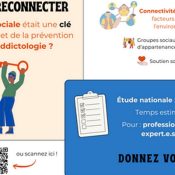Pauline Rasset (MC, LP3C, Université Rennes 2, ancienne doctorante LPCN), Jessica Mange (MC HDR, LPCN, Université de Caen) et Maria Augustinova (PR, CRFDP, Université de Rouen) ont publié un nouvel article.
Rasset, P., Mange, J., & Augustinova, M. (2024). What do we really know about age-related stereotypes and well-being of older adults? A commentary on the state of the art. Frontiers in Psychology, 15, 1358403 https://doi.org/10.3389/fpsyg.2024.1358403
Abstract
here is a considerable body of literature on harmful consequences of age-related stereotypesincluding consequences on physical and mental health. However, this commentary critically argues that the current state of the art disregards consequences of these stereotypes specifically for the wellbeing of older adults (i.e., outcome that is not to be confounded with mental health). To this end, the content of age-related stereotypes and the mechanisms through which they operate on physical and mental health are first outlined. The commentary then focuses on the very scarce evidence documenting how and when the well-being of older adults (as assessed directly and not as inferred from other indicators) is influenced by self-directed stereotypes. After setting out possible ways wellbeing may be involved in the relationship between self-directed stereotypes and physical and mental health of older adults, the present commentary argues that a better understanding of well-being would benefit strategies targeting the reduction of age-related stereotypes. Overall, this commentary on the state of the art highlights that future research is still needed to better understand both the direct and indirect relationships between age-related stereotypes and well-being that is not reducible to positive experiences of life (or hedonic well-being) but also comprises an eudaimonic component.
Keywords: age-related stereotypes, self-directed stereotypes, stereotype threat, internalization of stereotypes, hedonic well-being, eudaimonic well-being
Il est consultable via ce lien : https://www.frontiersin.org/journals/psychology/articles/10.3389/fpsyg.2024.1358403/full
Celui-ci a été publié dans la revue Frontiers in Psychology (IF: 3,8) une revue explorant différents domaines de recherche en psychologique, de la recherche clinique aux sciences cognitives, des études en imagerie aux facteurs humains, et de la cognition animale à la psychologie sociale.
Jessica Mange est enseignante-chercheuse au LPCN, elle s’intéresse, notamment, aux déterminants et à la prévention de la dépendance et à la prévention de la stigmatisation et de la déshumanisation.







